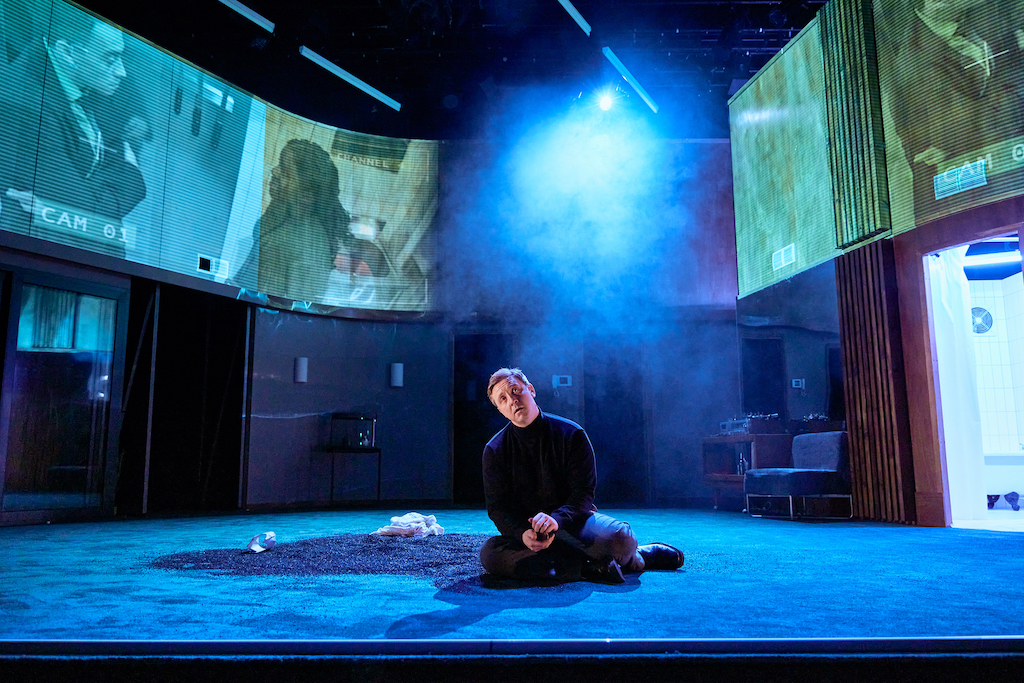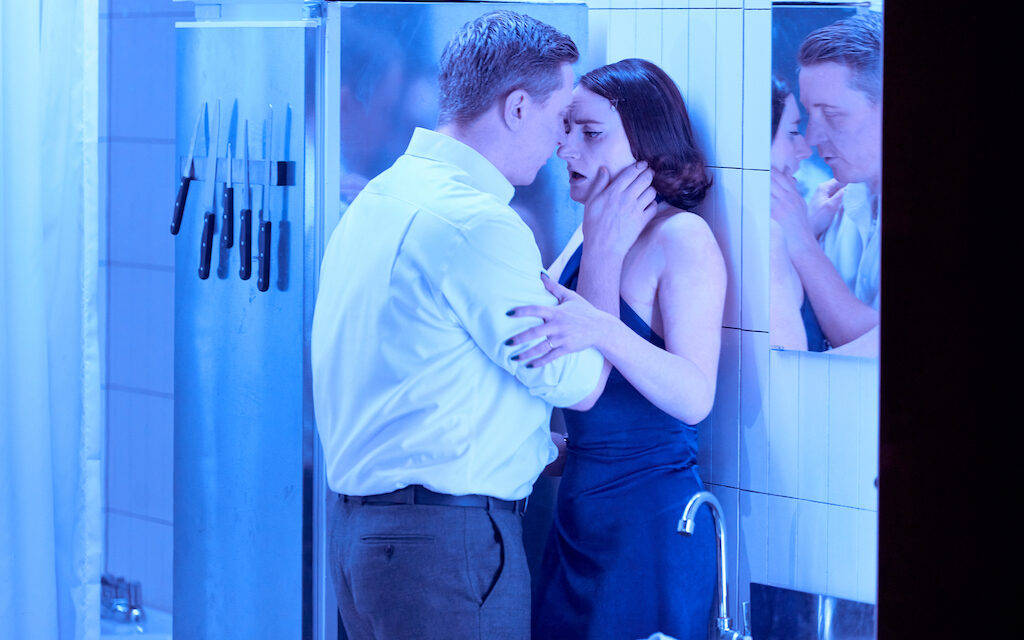
25 January – 10 February
Macbeth is not the out and out villain portrayed in Shakespeare’s Richard III. He’s more complex. Aristotle thought that where pain was a natural defence of humanity to keep it from physical harm, so shame was a natural defence to keep us from moral harm. However, like language, which we all have the capacity to learn, shame also needs to be taught. What goes on in Macbeth is a violation of that natural capacity which is a taught component of a civilised and ordered society. Macbeth, aided and abetted by his wife, suppresses or tries to suppress his feelings of guilt and shame. In the first instance for having unnatural, i.e. nature violating, thoughts that, welcome to him, seem to have a supernatural sanction. In the second, the internal battle between his awareness of what he has become and what he knows he should be.
Director Richard Twyman has deconstructed the play into its component parts, rearranged them in an order more suited to his setting and jettisoned any he considers irrelevant or at odds with a modern sensibility. This unbalances the play by ignoring part of Shakespeare’s intention. Thus the ‘weird sisters’ are nowhere to be found other than in Macbeth’s head. What remains is an examination of a descent into psychological breakdown.
Had I not already known what happens I would have been completely lost as to what was going on. Although it is suggested by Shakespeare that Macbeth has been harbouring thoughts of regicide, the encounter with the witches on the heath is the primum mobile for subsequent events. Without that meeting we did not have the sense of a spring unwinding.
Basia Bińkowska’s set has the feel of a mid-century boardroom or refectory and with the modern street dress gives the impression that the court in question is as likely the court of a drug baron or godfather. The aesthetic is reinforced when Malcolm (Hayley Konadu) bounces around with swinging dreadlocks whilst singing Karaoke to Yes Sir I Can Boogie on learning she had ultimately inherited from her father, Duncan (Ross Waiton). The impression was not that proper order had been restored, but that Scotland had better watch out. Again, Mike Noble as Macbeth gives a good account of psychological disintegration, whilst seeming to be little more than a chancer with a pushy wife.
This is a brave attempt by the English Touring Theatre to give a contemporary context to one of Shakespeare’s darkest plays. In the process it highlights some of the problems in transplanting plays out of their time and worldview.
★★★☆☆ Graham Wyles, 26 February 2024
Photo credit: The Other Richard


